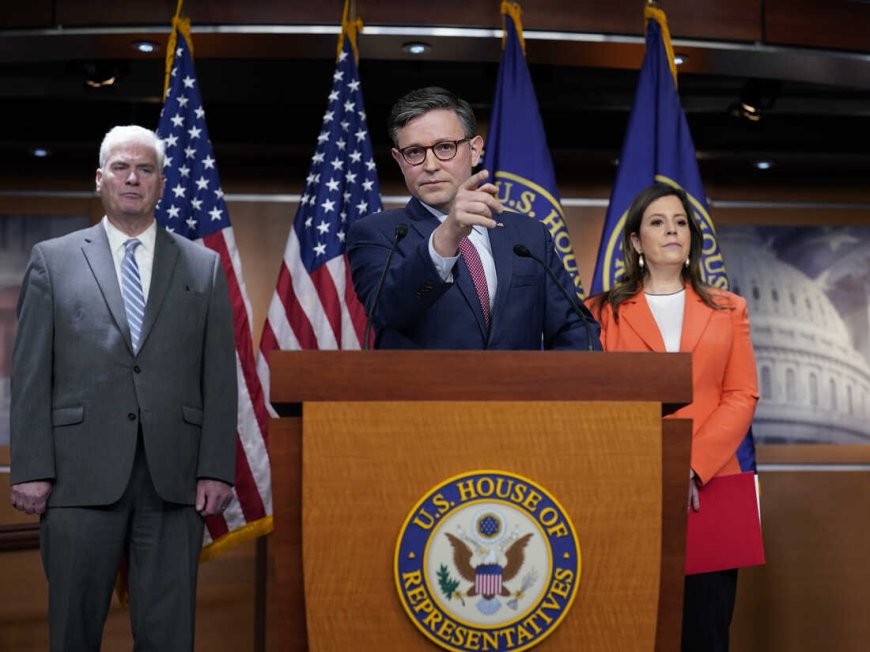Divided Fronts: The U.S. Congressional Rift Over Foreign Aid to Israel and Ukraine
The ongoing debate over foreign aid in the United States Congress has highlighted a significant rift between the Republican-led House of Representatives and the White House, particularly regarding aid to Israel and Ukraine. This discord underscores the complexities of U.S. foreign policy and the challenges of bipartisan agreement on international support.

As of November 2023, the Biden administration has taken a firm stance in support of Israel's actions in the Gaza Strip, despite international calls for a ceasefire. This position has been met with a mixed response from Congress, where a bill proposing $14.3 billion in aid to Israel for its conflict with Hamas has passed the House with a majority of Republican support. The bill's passage is notable for the division it has revealed within the parties: a rare occurrence given the historical bipartisan backing for Israeli aid. Only two Republican congressmen opposed the plan, while a mere 12 Democrats supported it. This divergence from the norm signals a potential shift in the political winds concerning U.S. foreign aid policy.
The Republican proposal, spearheaded by Mike Johnson, the new chairman of the House of Representatives, has been criticized by Democrats for its exclusion of security aid for Ukraine amidst its war with Russia. The Democrats' objection is not only on grounds of foreign policy but also fiscal responsibility. They argue that the aid to Israel, as proposed, would necessitate cuts to the budget of the U.S. Internal Revenue Service, thereby increasing the federal budget deficit and potentially leading to a revenue loss of nearly $26.8 billion over a decade, according to the U.S. Congressional Budget Office. The White House has been clear in its opposition to any bill that prioritizes aid to Israel without also addressing the needs of Ukraine. John Kirby, the National Security Council Strategic Communications Coordinator, has stated that President Biden would veto any such plan. The administration advocates for a comprehensive aid package that includes support for Israel, Gaza, Ukraine, and other national security concerns, with a proposed budget of $106 billion. This approach reflects a broader strategic vision that seeks to balance U.S. interests across multiple regions and issues.
In the Senate, Majority Leader Chuck Schumer has indicated that the upper chamber will not consider the House's plan but will instead work towards a bipartisan emergency aid package. This package would include aid for Israel, Taiwan, Ukraine, and humanitarian assistance for Gaza, reflecting a more inclusive approach to international aid that aligns with the White House's stance. The disagreement between the House and the White House is not just a matter of foreign policy but also one of domestic political strategy. The Republicans' focus on Israel and their reluctance to increase aid to Ukraine could be interpreted as a move to appeal to their voter base, which traditionally has shown strong support for Israel. However, this approach risks alienating moderate and independent voters who may view the support for Ukraine as a critical stand against Russian aggression.
The Biden administration's concerns extend beyond the immediate legislative impasse. There is a fear that the Republican opposition to the proposed aid levels for Ukraine could weaken the Ukrainian resistance against Russia. The administration believes that a robust and unified support for Ukraine is essential for maintaining pressure on Russia and upholding international norms against territorial aggression. Moreover, the focus on the Gaza conflict has led to accusations that the Biden administration is neglecting the situation in Ukraine. High-level officials have been criticized for not paying sufficient attention to the needs of Kyiv, potentially hampering efforts to develop and deliver aid. Ukrainian President Volodymyr Zelensky has expressed frustration with what he perceives as a lack of support from Western allies, warning of the potential collapse of Ukraine's resistance against Russian forces. The debate over foreign aid also reflects broader geopolitical considerations. The United States, as a global leader, has to balance its support for allies like Israel with its strategic interests in deterring Russian expansionism in Europe. The aid packages are not just financial support; they are symbolic of the U.S. commitment to these regions and the principles of democracy and sovereignty.
The current impasse over foreign aid in the U.S. Congress is a microcosm of the larger challenges facing U.S. foreign policy. The situation demands a nuanced approach that considers the immediate needs of allies, the long-term strategic interests of the United States, and the political realities of a divided Congress. The outcome of this debate will have significant implications for U.S. relations with Israel and Ukraine and for the broader international order. As the world watches, the decisions made by U.S. policymakers will shape the dynamics of international politics in the near future.













































